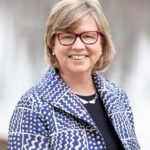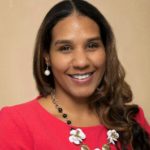

Anne Tangen
It’s no secret that the pandemic changed people’s relationships to their careers, and this is especially the case with women. While there was no shortage of stories about women who were laid off from their jobs or took themselves out of the workforce to care for their children, there are many others about learning to make do with less or searching for new income streams.
It was a difficult time, but also a time for self-reflection, during which women started wondering if they could turn their side hustle of baking artisan bread or selling clothing online into a full-time gig. Other women, perhaps closer to retirement age, decided they’d had enough of the corporate 9-5 and pursued something more fulfilling.
Many possessed good ideas and had unique skills to offer but didn’t know how to turn a passion project into an actual business. Entrepreneur for All (EforAll), in partnership with BankFive, has been connecting would-be entrepreneurs across the South Coast with business classes, mentorships and financial advice since 2016. Around 74 percent of people the program serves are women, 32 percent are immigrants, many of whom English isn’t their first language. In all cases, none had ever run their own business or even believed it was a possibility.
During COVID, the program saw a spike in applications from women looking to reimagine their careers and work-life balance. Most of these women were already running a business without even realizing it, but lacked access to capital and networking opportunities. While you can’t really teach someone how to be an entrepreneur, you can help them tap into the innovative spirit and creativity that is already within them.

Samia Walker
Money Needed for Leaps of Faith
Taking that leap of faith can be a scary proposition, especially for women with fewer resources, so working with them to build up their confidence is an unofficial pillar of the EforAll program. For instance, some women may have been nervous to participate in Zoom meetings early on if their kids were running around in the background. But now, it’s like that shield has come down and evened the playing field – every parent can relate to it.
It’s interesting to see how people start to slowly come out of their shell and realize: Why did it take a pandemic for me to finally pursue this?
Aspiring entrepreneurs who come to the program get key business education either from attending EforAll classes, reading BankFive blog posts and meeting with mentors from local businesses. While the program helps women navigate the curriculum, it also helps shore up their soft skills, practicing public speaking, promoting themselves on social media, and bartering services. And of course, making sure they don’t go into debt.
Many women along the South Coast, especially immigrants, have never had a long-term relationship with a bank. They need to be sure they won’t have to mortgage a house or run up credit cards to support themselves if they start their own business.
For example, if a single mother is on some kind of public assistance, she would worry that if her new business grew too quickly she’d lose that safety net without any guarantee that her business would continue to succeed. Others may not have a reliable car or access to childcare and worry about snowballing expenses.
That’s why the program conducts risk assessments with their entrepreneurs to make sure they have realistic expectations. The bank doesn’t just cut them a check for $10K without advising them on how and when to spend it.
Everyone Wins
When entrepreneurs are set up for success, the entire community benefits.
One female entrepreneur came to the program a couple of years ago looking to turn her passion and skill for making cake pops into a small business venture. She’d been working out of her own kitchen, then was able to rent some space in a commercial kitchen. In the span of two years, she was able to open up her own commercial and retail space in Fall River.
It wasn’t something she ever imagined for herself, but once she harnessed the power of her own talent, she found the proposition less scary. Now she’s out of her house and in the community much more – and her business has grown because of it.
The future is female entrepreneurs and we must support them as a means to our collective COVID recovery. A recent survey by the Retailers Association of Massachusetts found that small-business owners think that Massachusetts is on the wrong track to support small businesses. Sixty-one percent expect to sell their business within 10 years; 72 percent expect to retire in the next 10 years. The bottom line when it comes to entrepreneurship is: When you take fear out, put confidence in and combine it with support – financial and educational – everything else falls into place.
Anne Tangen is the president and CEO of BankFive. Samia Walker is the executive director of EforAll South Coast.